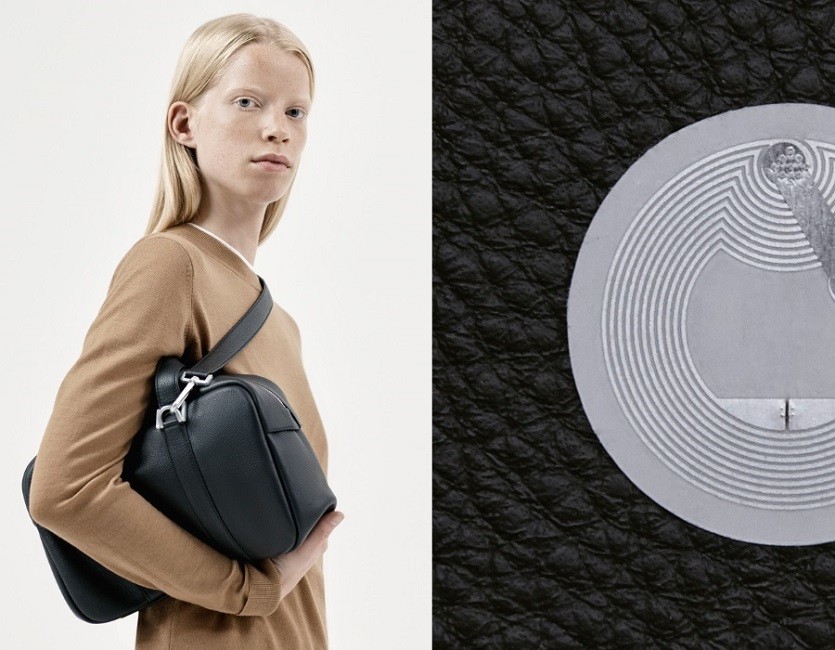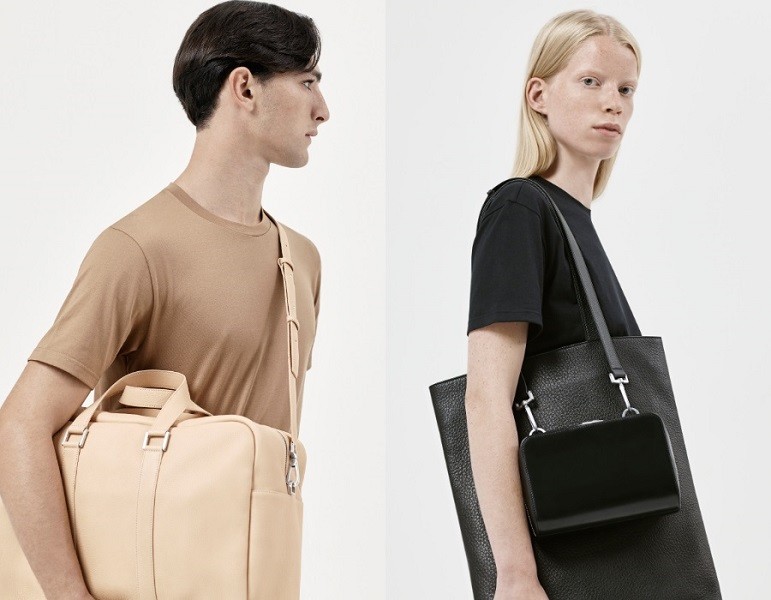Two Estonians and a German have founded a London-based luxury accessories business with the purpose to make timeless bags without logos and branding labels.
The trio of industry insiders – designer Oliver Ruuger, sustainability researcher Markus Vihma and a fourth-generation master craftsman Volker Koch decided to start doing something different, which is not usual in the fashion world.
Breaking the rules
In the fashion world, it is usually important to follow the latest trends, being recognised by wearing certain brands – and companies do everything to brand their products. The founders of Silent goods say they want to do things differently – make products free of distraction and design clutter and skip the unnecessary traditional wholesale markups.
 “Industry forces you to a certain way; this is how the system works. With Silent goods we want to create a product exactly the way we think it should be created – and I say this after having had the experience in the industry, in the system,” Ruuger, who has run his namesake fashion studio since 2011, says, adding they want to do things as human beings, not as a company, business or brand.
“Industry forces you to a certain way; this is how the system works. With Silent goods we want to create a product exactly the way we think it should be created – and I say this after having had the experience in the industry, in the system,” Ruuger, who has run his namesake fashion studio since 2011, says, adding they want to do things as human beings, not as a company, business or brand.
Their products do not have any logo or branding – instead, they want to show that true value is based on the “how” and not the “who”. The founders say they want to make the best bags, which are going to last a lifetime. “People are talking about building a brand, not making a great product. As a customer, I do not want to buy a brand, but a good product,” Ruuger comments.
It’s what’s inside that matters
According to Ruuger, Silent goods is pursuing sustainability in every aspect. Only the best sustainable materials are used to craft the bags – from organically farmed, naturally tanned leather, right down to the glue and thread – every last element is considered.
 The company is planning to sell its products directly to customers and is relying on word of mouth marketing, which frees resources and allows it to invest in the product instead.
The company is planning to sell its products directly to customers and is relying on word of mouth marketing, which frees resources and allows it to invest in the product instead.
“We end up having a ridiculously low price, because we do not have any middle men. We can invest more into the material to achieve a quality product,” Ruuger states.
They have also saved on packages, using pre-used boxes for shipping, such as the ones used for Snickers or Fairy Liquid, for example. “Why do you need a fancy box, when the customer is buying a product, not a box,” he adds.
Silent goods has also commissioned another studio to create a bespoke typeface designed to use less ink, with a purpose to reduce the environmental impact of printing shipping labels. The typeface is available for free for everyone – one just needs to contact the company.
Transparency about business
Another aspect where the company aims to differ in the fashion world is the way it communicates with its customers – or to be precise, how its products communicate with buyers.
Silent goods decided to put an NFC (near field communication) tag in each bag it is making. Each product has a corresponding page, which has all the relevant information about particular product – such as the used material, how it was made, who made it and from where the material originated. “We decided to be completely transparent about every aspect of the business. I think we make things that have a lot of value. All we have to do is to show it,” Ruuger explains.
For example, the bag’s scannable “transparency tag” shows a fully transparent supply chain, including the small family-owned factory in Turkey that collaborates with Silent goods. “I was thinking how we can show customers the makers of these products. I came up with the idea to make a documentary about this factory that goes back to 15th century. It is a great factory with good conditions and many generations working together,” Ruuger says, adding that they plan to make documentaries about every part of the product. “For example, in the winter time, we are going to a small tannery in Sweden where we are getting our leather from.”
Part of the company’s ethos is also passing knowledge to its customers on how to treat a bag. In case there is a need for repairs, its workshop in London is open for all the customers for repair, advice or care. “We want people to have this product for the rest of their life. So it makes sense to repair the product rather than throw away,” Ruuger says.
Ideas for the future
Currently the company is focused on making luxury level leather bags, but the founders do not rule out non-leather materials as long as these reach the same quality standards set in the company’s values. “We have a good expertise in this industry. Silent goods is about combining eco-conscious materials, ethical craftsmanship and purposeful design. This could be applied to anything,” Ruuger comments.
“The world is changing, the rhythm is changing. It is time for different things now. It does not stop with a product, it is about the whole process,” he notes.
Silent goods’ bags will be available to pre-purchase on the crowdfunding platform Kickstarter.
I
Cover: Silent goods decided to put an NFC (near field communication) tag in each bag it is making. Images courtesy of Silent goods.




Sustainability & real leather do not go in one sentence! Organically farmed animals are a marketing ploy.